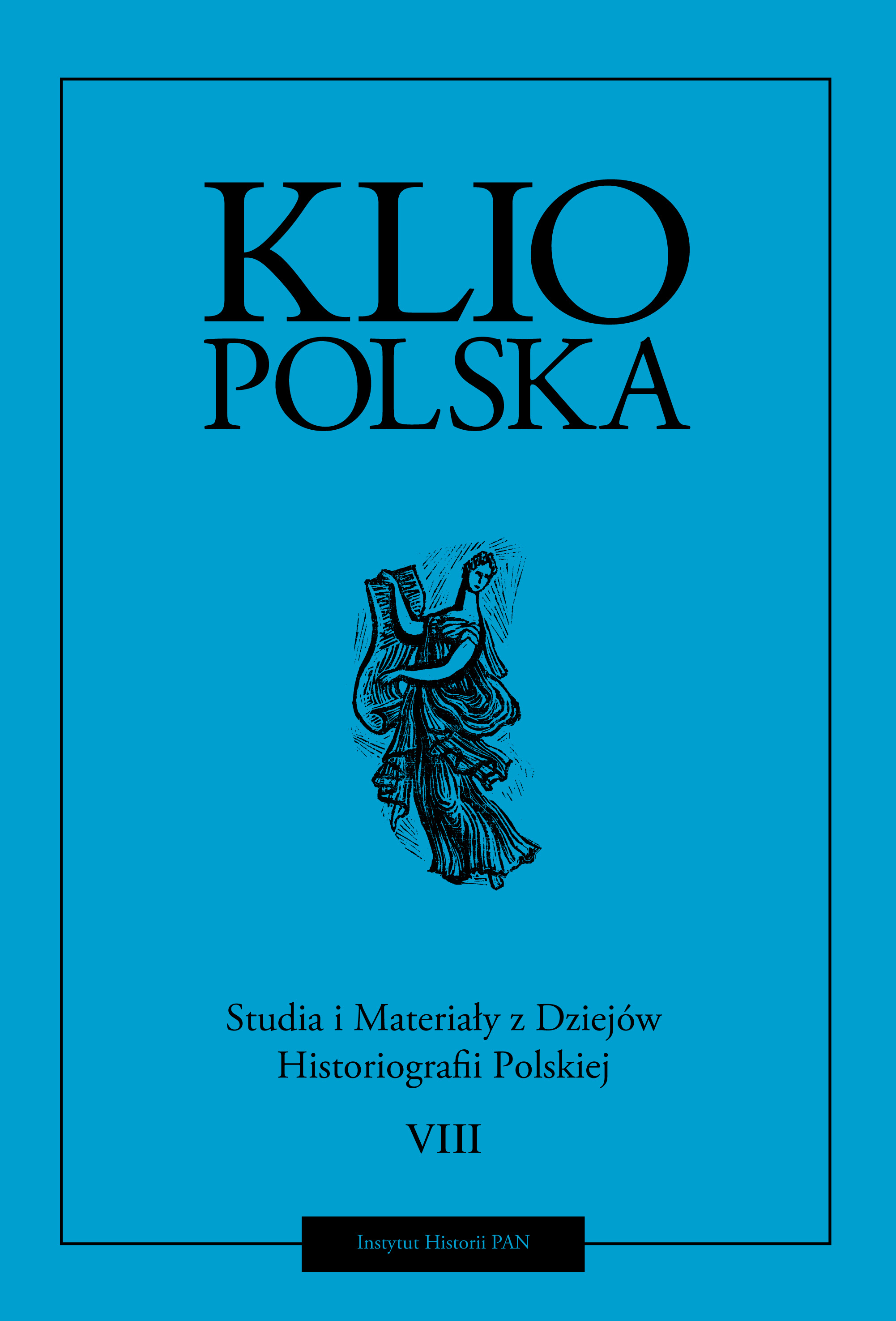Między endo- a egzogenezą państwa polskiego. Polemiki historyków polskich z historiografią niemiecką w czasach II Rzeczypospolitej
Between the endo and exogenesis of the Polish state: Polish-German historiographical polemics in the era of the Second Republic of Poland
Author(s): Andrzej WierzbickiSubject(s): History, History of ideas, Recent History (1900 till today), Interwar Period (1920 - 1939)
Published by: Instytut Historii im. Tadeusza Manteuffla Polskiej Akademii Nauk
Keywords: history and politics; the rise of the Polish state; Deutschland und Polen; ideologisation of history; axiological hypothesis and dilemmas
Summary/Abstract: The concept of the Norman origin of the Polish state, in different versions that were given varying political and ideological forms, was formulated by Polish historians in the nineteenth century. However, it was only after Hitler’s rise to power – when some German historians attempted to prove that Mieszko the First was a Norman warrior known by the name Dago and, consequently, that the members of the Piast dynasty were not descended from indigenous Slavic people – that it became the focus of some controversy in Polish historiography. This article presents the Polish-German polemic regarding this topic. Neither the political aspects of the hypothesis in question nor the way in which it was dealt with by German scholars can be given a clear-cut interpretation. The question is still unanswered of why “the historical science in ruin” – as Henryk Olszewski characterised the state of German historiography at the time – did not altogether yield to the pressure (to which the total war was only adding fuel) to use the hypothesis of the Norman founder of the Polish state to its fullest “ideological potential”. The answer to this question and a number of others lies outside this author’s field of expertise; the examination of these issues needs to be left to scholars interested specifically in the history of German historical and political thought. Should the facts referred to in the article be regarded as evidence that, even when in ruin, historiography was able to preserve some enclaves of freedom where it was subjected to no interference by the totalitarian state? Or, perhaps should one link these facts to the ideological ambiguity present in the theory of Prince Dago and his Norman warriors, who were to give rise to the Polish nobility and who, by establishing blood ties with Slavic autochthons, deserved credit for making an organisational and racial contribution to the rise of the Polish state and the Polish nation? How deep were the genetic bonds uniting the Germans and this Slavic nation? Didn’t one, in accepting such a hypothesis, seem to support the view that the German invasion of Poland in 1939 – and the country’s occupation which followed and that involved fighting against the Polish underground movement – was simply an example of fratricidal war?
Journal: Klio Polska
- Issue Year: 2016
- Issue No: 8
- Page Range: 49-62
- Page Count: 14
- Language: Polish

